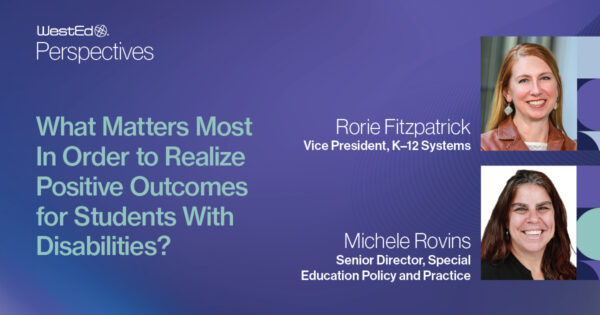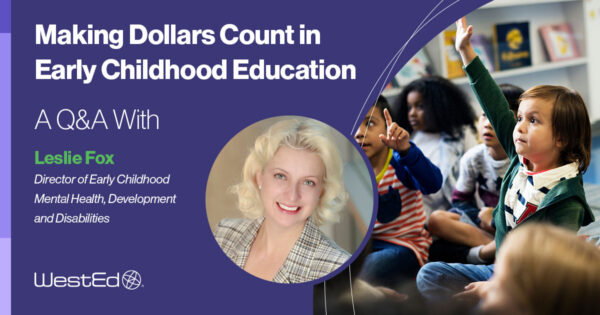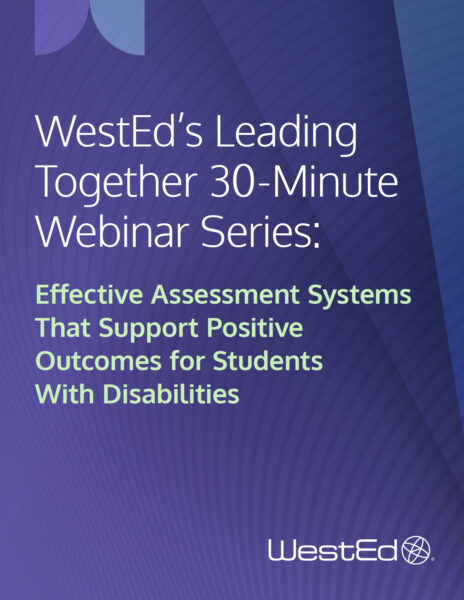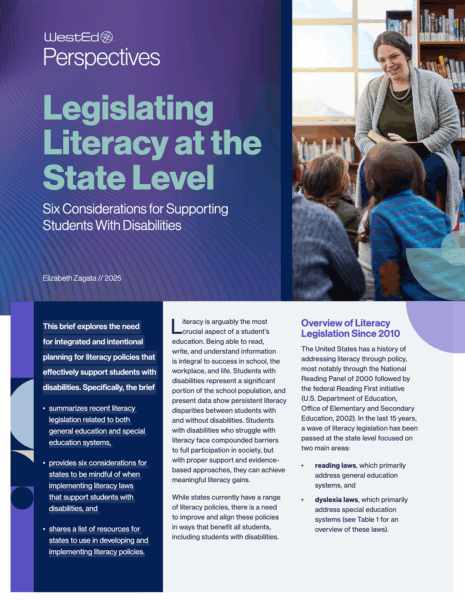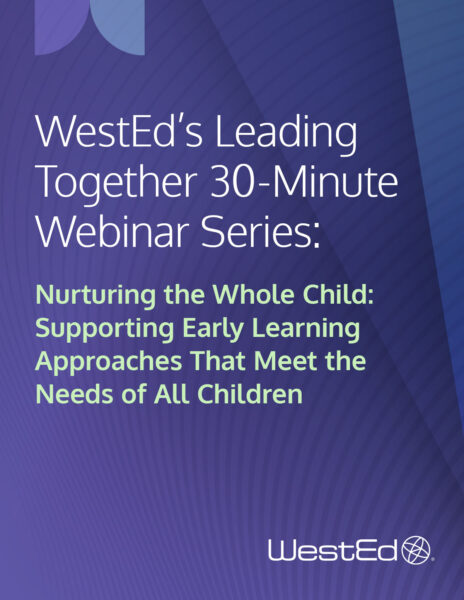
September 9, 2025
As educators begin a new school year, they continue to address the challenge of creating high-quality learning environments that serve all young children. The Individuals with Disabilities Education Act (IDEA) requires that children with disabilities be served in the least restrictive environment to the maximum extent appropriate. However, national data show that the number of preschoolers with disabilities in general early learning programs has increased very little over the past decade.
This spotlight blog shares three resources that early childhood leaders can use to ensure all children with disabilities receive the support and services they need to thrive.
Coordinating Strategic Funding and Cross-Program Resources for Early Childhood Education
States fund early learning environments by coordinating and maximizing federal, state, and local resources. However, effectively managing these complex funding streams requires strategic planning and a strong administrative infrastructure.
In Making Dollars Count in Early Childhood Education, Leslie Fox, WestEd’s Director of Early Childhood Mental Health, Development, and Disabilities, explains the importance of comprehensive system coordination:
“When we talk about effective strategies, it’s not just about getting the dollars—it’s about having the infrastructure in place to track every piece I just laid out.”
The blog post covers strategies for blending and braiding multiple funding sources, with Fox noting that braiding federal funds like IDEA requires tracking how funds are used for their intended populations while maintaining flexibility in implementation. Fox also addresses how states can more effectively leverage Medicaid to fund services for children with disabilities within early learning environments.
Implementing Inclusive Practices That Support the Whole Child
Creating meaningful learning environments for young children with disabilities requires evidence-based approaches that integrate the intentions of the child with developmentally appropriate practices. When educators understand how to honor each child’s unique strengths while fostering belonging, they create benefits for all children and families.
Beginning Together—a collaboration of the California Department of Education, the California Department of Social Services, and WestEd—has been providing training, team building, and technical assistance to early childhood educators across general and special education, early intervention, Head Start, Early Head Start, family child care, and preschool settings for over 25 years.
The webinar Nurturing the Whole Child: Supporting Early Learning Approaches That Meet the Needs of All Children features Linda Brault, Director of Working Together for Inclusion and Belonging at WestEd, and Ine Jack, Program Manager and Training and Support Specialist at WestEd. They explain how Beginning Together supports inclusive practice:
“When we prioritize the whole child and draw on educators’ expertise in early learning, we create benefits for children with disabilities, their families, and the educators who support them.”
This Leading Together webinar session demonstrates how Beginning Together explores developmentally appropriate practices to create meaningful and supportive environments for young children with disabilities from birth through age 5 and covers key strategies for honoring each child’s unique strengths; collaborating with families, educators, and specialists; and fostering a sense of belonging.
Watch the recorded webinar and access session resources, including materials from this webinar.
Building Community Partnerships to Serve Children With Disabilities
Research from WestEd’s evaluation of California’s Inclusive Early Education Expansion Program (IEEEP) provides evidence-based strategies for expanding access. The evaluation included surveys and focus groups with over 2,000 families; visits to early education programs; and perspectives from district staff, educators, and community agencies.
In Expanding Access to Inclusive Early Education for Children With Disabilities, Sarah Johns explains the value that families see in these programs:
“Three out of four families of children with and without disabilities reported that being in an inclusive early childhood program had a positive impact on their children.”
The evaluation found that families of children with disabilities described improvements in language and social–emotional skills, while families of children without disabilities noted how their children learned to appreciate individual differences and benefit from exposure to different learning techniques.
Johns identifies several key strategies that helped enhance access to early education programs, including developing partnerships between general and special education teams; creating community partnerships with Head Start and local child care agencies; and making sustainable systems improvements, such as streamlining procedures for identifying and referring children with developmental concerns.
Key Takeaways
Here are some actions early childhood leaders can take to strengthen their programs:
- Map current funding streams and assess where children with disabilities are being served to guide strategic resource allocation and system coordination.
- Implement evidence-based inclusive practices that integrate child intentions with developmentally appropriate approaches to support all learners.
- Access and utilize comprehensive, research-based resources that address the full spectrum of early childhood education challenges.
Work With Us to Advance Opportunities for Young Children and Students With Disabilities
WestEd offers a range of professional development, leadership, and research and evaluation offerings to enhance capacity, elevate instructional practice, and solve pressing challenges in the special education field. Working in direct partnership with leaders and staff across systems, we develop and implement evidence-informed supports that strengthen opportunities for sustainable improvement at all levels. Learn more about our work in Special Education Policy and Practice, as well as Early Childhood Development, Learning and Systems, and Infant/Toddler Care, Mental Health, and Well-Being.
